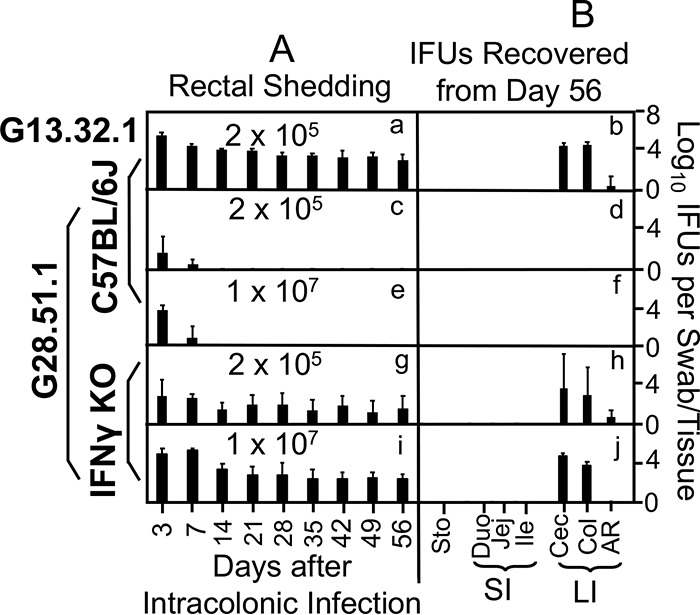FIG 4.

Rescuing chromosomal mutant G28.51.1 to colonize colon in IFN-γ-deficient mice. (A) Groups (n = 5) of C57BL/6J mice without or with deficiency in IFN-γ (KO) were intracolonically infected with C. muridarum without (G13.32.1) or with mutations in chromosomal genes tc0668 and tc0237 (G28.51.1) at the indicated doses. On days 3 and 7 and weekly thereafter, after the intracolon inoculation, rectal swabs were taken for monitoring live chlamydial organism shedding. Note that the ability of the chromosomal gene mutant G28.51.1 to colonize the gastrointestinal tract was fully rescued in mice deficient in IFN-γ. P < 0.01 (for the area under curve in panel a versus panel c or e, for panel c versus panel g, or panel e versus panel i; Wilcoxon test). (B) All mice were sacrificed on day 56 after intracolon infection for monitoring live chlamydial organisms in different segments of gastrointestinal tract including the stomach (Sto), small intestine (SI) tissues of the duodenum (Duo), jejunum (Jej), and ileum (Ile) and large intestine (LI) tissues of the cecum (Cec), colon (Col), and anorectum (AR), as indicated. Note that IFN-γ deficiency rescued the colon colonization mutant G28.51.1, allowing it to fully establish productive and long-lasting colonization in the colon.
